i made an water level indicator using IC: ULN2803
It works well when used on glass of water, but when connect to my rooftop tank all the leds slowly diminishes and turns off. I think this has to do with high resistance of the tank water, but i doubt it since it worked well for first few days.
i am not any expert (clearly) so any help is appreciated.
